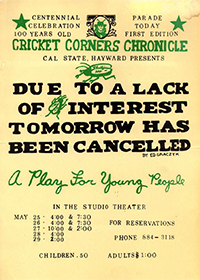LETTERS FROM THE GLOBAL PROVINCE
Cutting to the Quick: Aphorisms, Global Province Letter, 8 July 2016
"In human affairs, a straight line is never the shortest distance between two points"—WPD
Defining an Aphorism. Wikipedia tells us an aphorism "is a terse saying, expressing a general truth, principle, or astute observation, and spoken or written in a laconic and memorable form. Aphorism literally means a "distinction" or "definition". The term was first used in the Aphorisms of Hippocrates.
Even this Wikipedia definition, however, seems ponderous, long, and too full of too many syllable words. Aphorisms, we think, even definitions of aphorisms, should be short- as- hell, pithy sayings that cut people, and cant, and the world down to size. They are meant to be hand grenades that blow up puffery.
Hippocrates Number One Aphorism reads: "Life is short, and Art long; the crisis fleeting; experience perilous, and decision difficult. The physician must not only be prepared to do what is right himself, but also to make the patient, the attendants, and externals cooperate." If life is short, then we should seek to imitate its brevity, such that we do not waste our moments here. Art too long should be edited by a writer of succinct aphorisms.
The best aphorisms, we would claim, are short on words, marbled with wit, and long on wisdom. We will share with you here a few from us that you have not heard.
(1) Cutting out the Small Talk, so that we can get down to serious drinking. A Swede and a Finn settled into the bar aboard ship that was crossing the Baltic from Stockholm to Helsinki one stormy night. The Swede opened, "Rough seas." The Finn rejoined, "Are we here to drink or just to do a lot of talking?" Too many words keep us from getting down to business.

There was a drinking hangout back in the sixties in South Berkeley founded by Max Scheer, later owner of the town's underground paper The Berkeley Barb. Called the Steppenwolf, after the novel by Hermann Hesse, it inspired numerous leftover graduate students who were going nowhere to show up and meet up with many who were headed in the same direction.
It was the men's room that was the heart and soul of the place. The graffiti could be absorbing. We particularly liked: "Tomorrow has been cancelled due to lack of interest." It fitted our notion that a razor sharp aphorism can restore meaning in our parlor when words litter up our world.
The relentless chatter in our lives—cable TV, digital social networks, and on and on—has our minds and bodies aclutter. Maybe aphorisms can cut through it all and restore quietness. Back in days of yore, the wonderful humorist Will Rogers was at Madison Square Garden, slated to speak of this and that. But first one of New York's voluminous politicians, right there on the dais beside him, had to spatter his gorged spirits on one and all. His talk, if it could be called that, knew no end. But finally, finally, he had emptied every pocket of his innards, and made way for Rogers. Will stood up and said, "It is an honor to be here before you beside that famed Chinese statesman On Too Long." Whereupon Will sat down, uttering not a peep more.
Which brings to mind one of our own aphorisms. "Everything is relative, but a helluva lot more is irrelevant." So skip it.
(2) I Don't Mind Scoundrels If They Make Me Laugh. We are all pretty sure that at least 50% of the politicians we meet lie and cheat and do all sorts of other noxious things. It is a bother now that our apparent presidential candidates—Republican and Democrat—are bad in more ways than we can count, such that the pollsters tell us that this may be the first time in the history of our republic that the American populace clearly dislikes both of the very practiced fibbers who will go head to head in the race to lead our country. Both seem to have accumulated great fortunes by dishonorable means.
We ourselves would not feel half bad about it if they were jolly folks who could give us a good belly laugh. One of our political heroes who still is playing fast and loose down South is Governor Edwin Washington Edwards, who led Louisiana for quite a while before he did some jail time. His raffish sayings include: "The only way I can lose is if I'm caught in bed with a either a dead girl or a live boy;" I "will be a model prisoner, as I have been a model citizen;" "Sister, just don't let me get into the habit." (after he hugged a nun). Just to think about the exploits of Edwards is to put a broad grin on one's face.

Fact is, we find it easy to enjoy and forgive and follow men—and women—who can spin a yarn, have a good time, admit to their sins, and indulge in a little petty corruption, especially when they spread the spoils far and wide enough. In the 1950's a hack politician named Vincent Impellitteri became mayor of New York. He was a sad affair with links to crime figures and with an inclination to dip into the till. We never can forget a 50's New York political leader (who oddly enough was honest) who reviled this 101st mayor of New York, always bringing up in contrast a 1930's New York chieftain named Jimmy Walker. He said, "Ah, at least Jimmy gave us a good time. You knew he was stealing from you, but he made you laugh." Jimmy was enough of a character that he was affectionately known as Beau James, which came to be the title of a movie about the mayor starring none other than Bob Hope. Mayor Walker, in an early career, was even a songwriter who could delight with words such as:
Will you love me in December as you do in May,
Will you love me in the good old fashioned way?
When my hair has all turned gray,
Will you kiss me then, and say,
That you love me in December as you do in May?
Perhaps we need a bevy of Walkers to lead us now. They would not pretend to solve our predicaments. But, indeed, they would make us raise our heads to cheer on fellas who could ask for our love just when they were reaching into our pocketbooks. Sometime, too, we have to take some time out to listen to his song "There's Music in the Rustle of a Skirt." He was, to quote one writer, "a finer class of corruption."

(3) It's a sin to lie, but you're a damn fool if you lie to yourself. The Trumps and the Clintons trot out whoppers about almost anything. Once upon a time they were both for trade treaties: now they both pledge they will bring jobs back to these shores by only doing smart trade deals or none at all. They're both for working people except when it comes to raising the minimum wage to $15. And so on.
They allude to a growing economy (albeit they find the growth too slow). But when you strip out the puffery and phony figures you discover we really have had a no-growth economy since the 1990s. They talk about providing a living wage, even as the middle class gets deeper into debt. It takes about $130,000 for a family of four to get by these days, but the median income is really about half that and no politician is going to make up the difference. We blather on about a safe and value adding financial sector (banks). But in truth all the major banks still are under capitalized in respect to the level of risk they are allowed to carry. Further, our financial sector is vastly too big so it is vastly unstable and is sucking up capital that would be better used in many other areas, particularly to fund an infrastructure that is mostly broken.
Likewise, we have a huge healthcare system (to include the insurance companies and pharmaceuticals) that is like the financial sector. It sponges up capital but does not overall do much for health, since most of the funds are misallocated. Our national health ain't improving. The gains now would come from acts of prevention, not attempts at cures. But we still mostly talk about cures. As we age, there is a vast growth in chronic disease where the docs and pharmas have not been productive. Our two most important epidemics—obesity and mental depression—flourish unabated. All the neurological diseases have resisted what the medical establishment is pandering. One only has to read Do No Harm: Stories of Life, Death, and Brain Surgery, a memoir by Henry Marsh, a very honest English brain surgeon, to understand the hopeless estate of medicine in the face of growing chronic afflictions. Generally the doctors are wonderful except if you are really sick.
The lies we tell ourselves about the economy, about our engagements in the Middle East, about our health and healthcare, would suggest moral rot. But worse, these self lies prevent us from getting on with it, doing the real things that might improve the lives of families and neighbors. All the small talk, all the preachy politicians, all the grandiose lies, they enmesh us in today and prevent us from discovering tomorrow.
Augustine's Laws. You might think we are talking here about St. Augustine of Hippo who talked about grace and the union of body and soul. Well we might, since it is clear that there is not enough soul conjoined to our bodies in the present age.
But instead we are talking about Norman Ralph Augustine, Under Secretary of the Army for technology and later head of Lockheed Martin. He is famed for Augustine's Laws, a witty collection of aphorisms (our topic here) that poke fun at all the wise men in government and business, often pointing out the wastefulness of their pronouncements and their programs. We particularly like, "The last 10 percent of performance generates one-third of the cost and two-thirds of the problems."
Society as a whole is experiencing that in spades, where every new expensive iteration of software (think Google, Microsoft, Yahoo, etc.) gets progressively worse with gaffes aplenty and new features that are utterly confusing to ordinary users. We are spending huge sums on products and product iterations we don't need and which often don't work very well. The latest iteration of the vaunted iPhone has been so very troublesome that Apple has had to issue quite an update: one of our technical operatives has had no less than 5 iPhones lately, because of these insurmountable problems. We think, therefore, that both St. Augustine and Norman Augustine, if they were living, would now be saying, "I have seen the future and it does not work."
P.S. But make no mistake about it, it's not just the IPhones that are lumbering. Google has just come up with a new Android upgrade that is dreadful and works much less well than its predecessor.
P.P.S. "I cannot tell a lie." Supposedly George Washington said as much to his father, confessing to cutting down a cherry tree with his axe. But this story is a complete fabrication by Parson Weems. It seems as if the lying can get so bad that we even lie about our lies.
We have heard there is a companion story set in the mountains of China. One day a China patriarch lined up his five sons near a cliff where there had once been an outhouse. He wanted them to come clean as to who had pushed the outhouse over the cliff. First, he told them of Washington and the cherry tree. Then he asked who had done In the outhouse. Number five son owned up.
The father took a stick and beat his son fiercely for some five minutes. The son wailed, "But father what of George Washington? Why have you beaten me for telling the truth?" "Ah," said the patriarch, "George Washington's father was not in the tree when it was cut down."
Home - About This Site - Contact Us
Copyright 2016 GlobalProvince.com